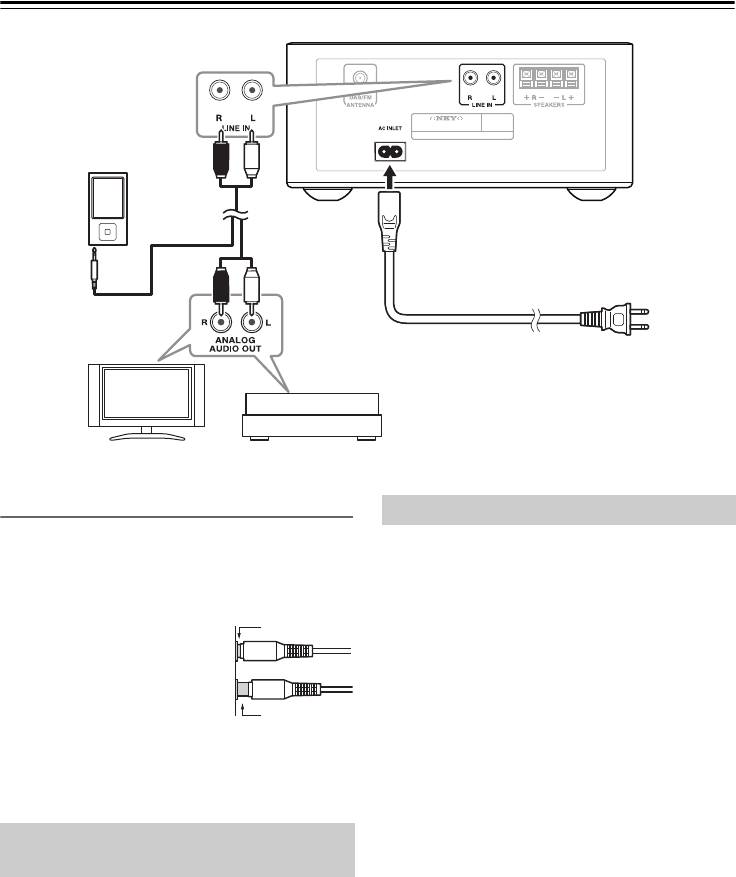
En-16
Connecting Other Components
About Connections
• Before making any connections, read the manuals
supplied with your other components.
• Don’t connect the power cord until you’ve completed
and double-checked all connections.
Push plugs in all the way to make
good connections (loose
connections can cause noise or
malfunctions).
Note:
• Do not place anything on top of the CD receiver.
Otherwise, ventilation may be blocked and heat may
build up, causing a malfunction.
Connect the CD receiver’s LINE IN jacks to the
OUTPUT (PLAY) jacks of your audio playback device.
Use an audio cable that is suitable for your playback
device.
You will need a phono equalizer (optional) to connect a
turntable. If your turntable features a built-in phono
equalizer, you can connect it directly.
Connect the CD receiver’s power cord to a suitable wall
outlet.
Note:
• Do not use any cord other than the included power
cord.
Do not connect the included power cord to any other
device. Doing so may cause malfunctions or
accidents.
• Do not unplug the power cord from the AC INLET
while the other end of the cord is still connected to an
AC outlet. You may receive an electric shock if you
accidentally touch the internal terminals of the power
cord.
• Before connecting the power cord, connect all of your
speakers and AV components.
• Turning on the CD receiver may cause a momentary
power surge that might interfere with other electrical
equipment on the same circuit. If this is a problem,
plug the receiver into a different branch circuit.
• Plug the power cord into an AC outlet that is easily
accessible so that you can quickly unplug it if
necessary.
CD receiver
Analog audio
cable (RCA)
Portable
audio player
Tu rntabl e
To wall outlet
(Plug type varies from country to
country.)
TV
RCA/Mini
plug cable
Connecting an Audio Playback
Device
Right!
Wrong!
Connecting the Power Cord


















